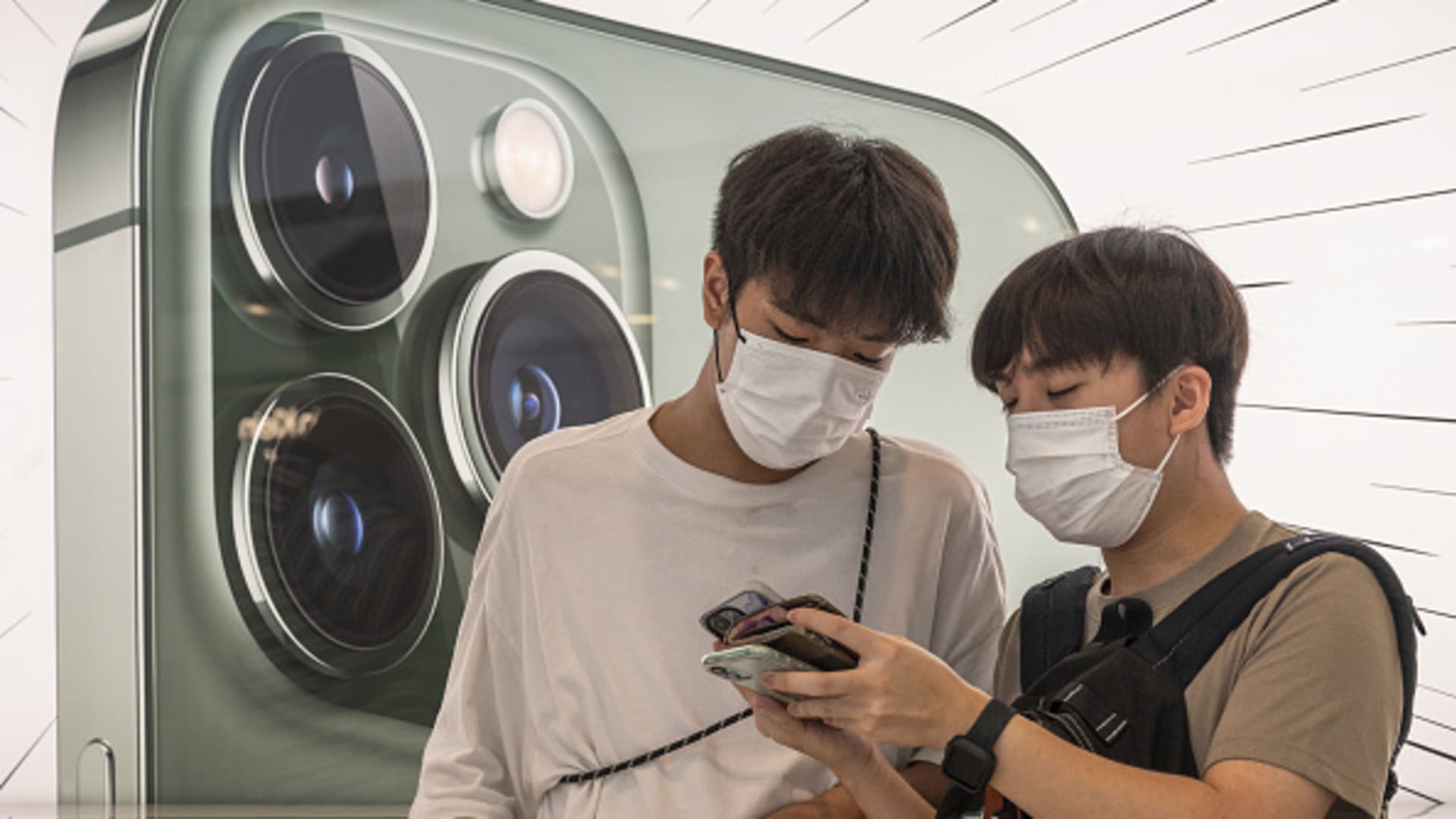The closely watched consumer price index continues to show headline inflation in the U.S. hovering at levels last seen in the mid-1980s.
Prices for a wide variety of goods and services, including food, airfare and gasoline, rose in the latest reading, released last week. On a 12-month basis, headline inflation was up 8.2%, according to the Bureau of Labor Statistics, which publishes the CPI.
But one product category monitored in the CPI recorded a 22% plunge, showing deflation: smartphones.
That might seem counterintuitive. Most phones are expensive, and prices for the best ones aren’t going down. Apple released new iPhones in September at the same U.S. prices as last year’s options, for example. And Samsung’s high-end devices cost as much as $1,800 this year. Average selling prices for smartphones continue to climb in markets around the world.
It turns out, smartphones aren’t getting cheaper. They’re getting better. And that’s why the CPI shows them deflating instead of inflating like a lot of other goods.
Here’s why: Normally, the CPI contains price comparisons for identical items, whose prices don’t change much from year to year. So, it might compare eggs with eggs, for example. But in the case of smartphones, the statistics bureau has to control for devices that get better each year. If smartphones are improving and the price is staying the same, then the bureau records a price decline.
“There’s been a lot of declines in the [smartphone] index. And that’s really just in large part dealing with the quality improvements,” said Jonathan Church, an economist at the bureau.
Twice a year, the bureau looks at the new smartphone models and measures how they’ve improved — whether they have better cameras, displays or other new features.
“For smartphones, we’re talking about things like screen size, RAM, processor speed, phone camera or rear camera, whether it’s foldable, or things like that,” Church said.
Then the bureau makes a “quality adjustment.” If the new iPhone’s price didn’t rise but the phone has new features, then the CPI determines that device to be more valuable than the old one, and it assumes consumers get more value for the same money.
Estimating the size of the quality adjustments is done with a hedonic modeling method, and the bureau uses data from a third-party dataset that includes smartphone specs.
Or, as the bureau puts it: “If a replacement smartphone is different from its predecessor and the value of the difference in quality can be accurately estimated, a quality adjustment can be made to the previous item’s price to include the estimated value of the difference in quality.”
The bureau has indexed smartphone technologies to a starting point in late 2019, when Apple’s newest device was the iPhone 11 and Samsung’s best was the Galaxy S10. In fact, smartphone prices have been deflating since 2019, according to the CPI.
Eventually, Church said, smartphones may mature into the kind of product that would see price increases and inflation. But the rate of improvement would have to slow down.
“It’s really only at a certain mature point in the cycle that their price will start to go up again,” Church said. “It seems pretty early in the lifecycle still, smartphones in general.”
